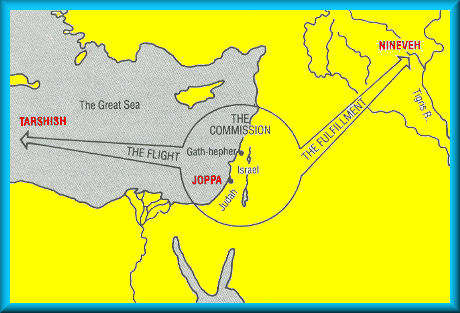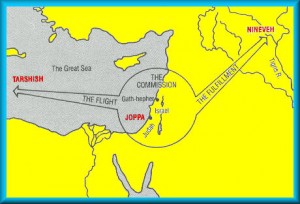
What Is Really There?
As I listened to a couple of lessons at Polishing the Pulpit recently, I was further convicted about something that I have been trying to work on for some time. It is so easy to find little phrases in the Bible that are worded in an interesting way and just start making applications from them. While the applications we make may be Biblical and needed, they may not necessarily be what is in that text.
Here is one that I am reflecting on this week as I study and prepare a sermon for Sunday night.
How often have we read and taught the book of Jonah? It is one of the most well-known stories in the Bible, and a wonderful reminder about human tendencies and God’s will being done. However, I think we sometimes teach something from the book that simply is not there.
When we talk about Jonah going to Tarshish (Jonah 1:3), we often state that Jonah was afraid of going to Nineveh. We back that up with historical information about the cruelty of the Assyrian nation and the fact that God stated in verse 2 that these were an evil people.

The fact of the matter is, it is never said that Jonah ran due to fear of these people! In fact, if we dig more deeply into the book, we are told why he ran, and it has nothing to do with fear of the Assyrians or of the citizens of Nineveh. In Jonah 4:2, after the prophet has preached and the city has repented and been forgiven (Jonah 3:6-10), Jonah states,
This is why I made haste to flee to Tarshish; for I knew that you are a gracious God and merciful, slow to anger and abounding in steadfast love, and relenting from disaster.
Jonah was not afraid of the citizens of Ninevah. Jonah was afraid of perverse, evil, Gentile people being forgiven by a compassionate God.
Are there texts that teach that sometimes we are afraid and run from the assignments God has given? Of course there are, but Jonah 1 is not among them. Just another reminder that we need to study the text to figure what is really there. I am no expert in this for sure, but it is something I am truly making an effort to improve upon. Hopefully, this little post helps you do the same.




5 Comments
LukeD
This is a good post.
As you pointed out, we do have historical information about the cruelty of the Assyrian people and God’s mention of them as evil, but I would suggest that Assyria’s cruelty doesn’t make Jonah afraid to go there—rather, it just makes him think of the Assyrians as a bunch of jerks who don’t “deserve” God’s mercy.
Of course, if you portray Jonah as the prophet who cares more about a plant that provides him with shade than he does for all the people of Nineveh, he doesn’t come across as very good guy. It’s easier to just say that he’s afraid and then skip chapter 4 altogether. 🙂
Adam Faughn
Luke, you are right. In my notes, I am making the point that I wish Jonah only had 3 chapters! However, we must include chapter 4 and notice this lingering struggle the prophet had. Thanks for reading and commenting.
Pingback:
Paula Harrington
I love that God wanted us to know this. Jonah was human and too quick to judge others based on their shortcomings. He was, in essence, a religious snob who loved God but didn’t always agree with God on love, forgiveness, and mercy. Thanks for this post and reminding us that God’s people don’t always like it 🙂
Pingback: